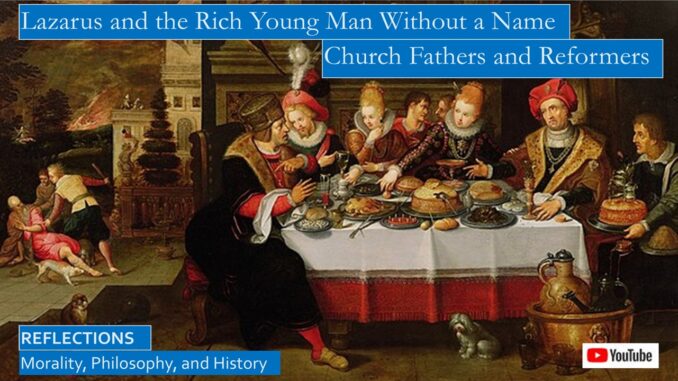
Why does Jesus in Luke bless the poor, while in Matthew Jesus blesses the poor in spirit?
Why do we know the poor beggar as Lazarus, while the rich man is anonymous?
Why did the rich man know Lazarus’ name? Did he converse with him often? Did he regard him as a friend?
Why didn’t the rich man invite Lazarus to dine at his table?
YouTube video for this blog: https://youtu.be/zI-7IGuctkg
WAS LUKE THE WOKE GOSPEL, WHERE THE POOR ARE BLESSED?
The Parable of Lazarus and the Rich Man only appears in the Gospel of Luke. The literal reading of this parable suggests that poverty itself is blessed, while the wealthy are not blessed. Other parables that only appear in Luke and reflect on the poor include the Good Samaritan[1] and the Rich Fool.[2]
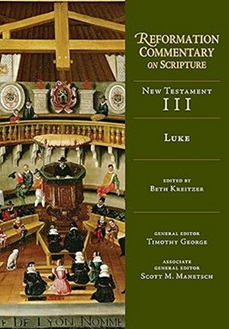
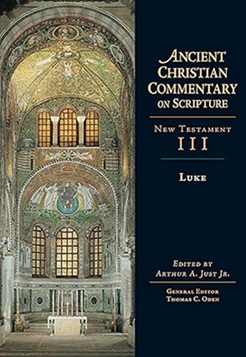
We can see a difference in emphasis when we compare Jesus’ Sermon on the Mount in Matthew and his Sermon on the Plain in Luke.
In Matthew, Jesus exhorts us in the Semon on the Mount:
“Blessed are the poor in spirit, for theirs is the kingdom of heaven.”[3]
There are no woes that follow the blessings in Matthew.
But in Luke, the WOKE Gospel, Jesus is more emphatic in exhorting us to care for the poor. He exhorts us in the Sermon on the Plain:
“Blessed are you poor,
for yours is the kingdom of God.
But woe to you who are rich,
for you have received your consolation.”[4]
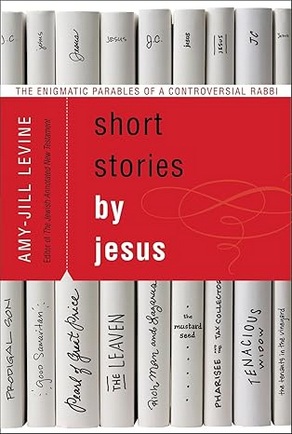
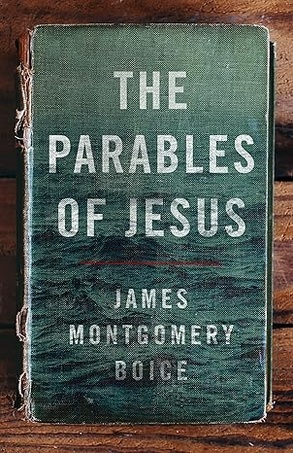
It is not money that is the root of all evil, it is the love of money, as St Paul in Timothy exhorts us: “For the love of money is the root of all evils; it is through this craving that some have wandered away from the faith and have pierced their hearts with many pangs.”[5]
Likewise, the reformer Kaspar von Schwenckfeld teaches us that “the prophet David taught in the Psalms that when a person comes into riches, he should not throw his heart after them.”[6]
Commenting on the Rich ruler in Mark, Jesus exhorted: “How hard it is for those who have riches to enter the kingdom of God! For it is easier for a camel to go through the eye of a needle than for a rich man to enter the kingdom of God.”[7]
We pondered what the Church Fathers and Protestant Reformers teach us about caring for the poor when commenting on the Scriptures.
Blessed Are the Poor, Woe to the Rich, and Other Woke Compassionate Bible Verses
https://seekingvirtueandwisdom.com/blessed-are-the-poor-woe-to-the-rich-and-other-woke-bible-verses/
https://youtu.be/576TYemgA8o
We also reflected on St John Chrysostom’s series of homilies on the Parable of Lazarus and the Rich Man, and he went off-topic in several of the sermons, including reflections on reading Scriptures, preaching, and whether tragedies like earthquakes should shatter our faith in God. In his commentary on the Steps of the Ladder of Divine Ascent on love of money, or avarice, and non-possessiveness, Father Vassilios referenced these homilies.
St John Chrysostom: Lazarus and the Rich Man: When Are the Poor Unworthy? On Wealth and Poverty
https://seekingvirtueandwisdom.com/st-john-chrysostom-lazarus-and-the-rich-man-when-are-the-poor-unworthy-on-wealth-and-poverty/
https://youtu.be/jOi6SNDlo74
St John Chrysostom On Reading Scriptures and Preaching
https://seekingvirtueandwisdom.com/st-john-chrysostom-on-reading-scriptures-and-preaching/
https://youtu.be/IPnryRK7SYc
St John Chrysostom, Voltaire, and Leibniz Ask: Why Would a Loving God Permit Earthquakes?
https://seekingvirtueandwisdom.com/st-john-chrysostom-voltaire-and-leibniz-ask-why-would-a-loving-god-permit-earthquakes/
St John Climacus, Ladder of Divine Ascent, On Avarice and Non-Possessiveness, Steps 16 & 17
https://seekingvirtueandwisdom.com/st-john-climacus-ladder-of-divine-ascent-on-avarice-and-non-possessiveness-steps-16-17/
https://youtu.be/8viBLzhjMrI
PARABLE OF LAZARUS AND THE RICH MAN
Jesus, in Luke, begins the parable of Lazarus and the Rich Man: “There was a rich man, who was clothed in purple and fine linen and who feasted sumptuously every day. And at his gate lay a poor man named Lazarus, full of sores, who desired to be fed with what fell from the rich man’s table; moreover, the dogs came and licked his sores.”[8]
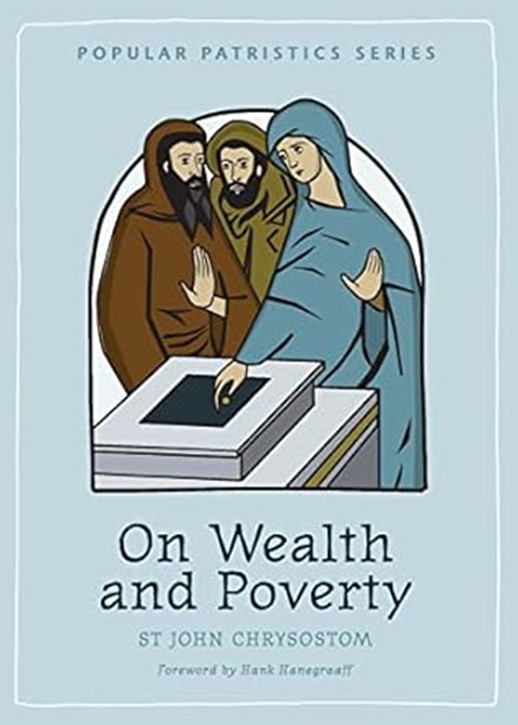
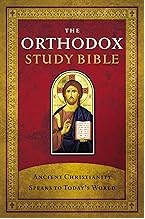
The Baptist Broadman commentary observes that “purple was the expensive outer garment worn by royalty.” “The rich man’s inner garment was made of costly linen” imported from Egypt. He continues: “Bread served as napkins in those days. After it was used, it was thrown under the table,” and then given to Lazarus.
Also: “Death is the great mocker of our pretensions and arrogance, of our petty social divisions based on race and wealth.”[9]
The Greek text says Lazarus is a poor man, not a beggar, although some translations label Lazarus as a beggar. The Reformer Johann Spangenberg teaches us that the world says that “this one is a beggar. And why? His sins make him guilty before God; therefore, God is punishing him. This is the sort of judgment which Job’s friends made.” The poor “have nothing to eat, neither food nor shelter, neither house nor yard, no money, no possessions, no friends, no comforter. No one takes care of him. Only the dogs take pity on him and lick his wounds.”[10]
Spangenberg continues: “Lazarus is patient and does not grumble against God. He does not complain about the rich man, nor does he wish him any harm, but he stays meekly silent and is at peace, no matter what God does with him.”[11]
Likewise, St Augustine teaches us, “The rich do not need to fear riches but vices. They should not fear wealth but greed. They should not be afraid of goods but of greed. Let them possess wealth like Abraham and let them possess it with faith. Let them have it, possess it, but not be possessed by it.”[12]
WHY IS LAZARUS NAMED, BUT NOT THE RICH MAN?
Why do we know Lazarus’ name, while the rich man is anonymous? Was this a parable, since this is the only parable that names one of its characters? Or was this a true story recounted by Jesus?
The Orthodox Study Bible teaches us that “the rich man remains unnamed because he will be ultimately forgotten.”[13]
The Anglican Dean of Canterbury John Boys teaches us that “Christ acknowledged the poor man but not the rich one” because:
- “First, Our Savior wanted to show that his ways are not our ways, for we scorn the poor and take notice of the rich only.”
- “Second, Christ omitted the epicure’s name because he does not recognize the wicked: ‘I never knew you.’ God knows his own children by name, for their names are written in heaven.”
- “Third, Christ omitted the glutton’s name to signify that the ‘memory of the righteous is a blessing, but the name of the wicked will rot.’”[14]
St Jerome speculates that this is not merely a parable, but that it was an actual event that Jesus told to his disciples. Unlike the other parables, we know the name of the poor man Lazarus.[15] Lazarus’ name means “one who has been helped.”[16]
St Augustine has another explanation why Lazarus is called out by name, but not the rich man. “God who lives in heaven kept quiet about the rich man’s name, because he did not find it written in heaven. He spoke the poor man’s name, because he found it written there. Indeed, he gave instructions for it to be written there.”[17]
How did Lazarus arrive at the gate? Quoting the Jewish commentator Amy-Jill Levine: “The anonymous people who placed the poor man at the gate may have put him there because they knew that the rich man had funds or because they knew that his friends and relatives would enter the gate and see him.”[18]
Most commentators, including St John Chrysostom, assume that the rich man neglects to give his table scraps to Lazarus. But if that were true, how would the rich man know Lazarus’ name? Many readers have given food to beggars on the street corners, how many of you know the names of these beggars? Maybe the rich man did not totally ignore Lazarus, maybe he chatted with him as a friend, although he likely did not give him enough to recover his health.
A real-life example is when Jimmy Carter recalled how his nurse mother, Lillian Carter, took care of the wandering hoboes. During the Depression he remembered that: “When Mama was home, we never turned away anyone who came to our back door asking for food or a drink of water. Those who showed up were invariably polite, and most of them offered to cut wood or do other yard work in return for a sandwich or some leftover fried chicken or biscuits. We enjoyed talking to them and learned that many were relatively well-educated and searching for jobs of any kind.”
Carter continues: “One day the lady from the next farm came to visit, and Mama commented on how many tramps she had helped that week. Mrs. Bacon said, ‘Well, I’m thankful that they never come into my yard.’”
“The next time we had some of the vagrant visitors, Mama asked why they had stopped at our house and not the others. After some hesitation, one of them said, ‘Ma’am, we have a set of symbols that we use, to show the attitude of each family along the road. The post on your mailbox is marked to say that you don’t turn people away or mistreat us.’”[19]
Jimmy Carter, Memories of Sharecropping, Hoboes, New Deal, and Civil Rights in Rural Georgia
https://seekingvirtueandwisdom.com/jimmy-carter-memories-of-sharecropping-civil-rights-and-life-in-rural-deep-south-georgia/
https://youtu.be/P8CCK4cGlVw
Jimmy Carter, Raising Crops and Livestock, and Health and Hygiene, in Rural Georgia During the Depression
https://seekingvirtueandwisdom.com/jimmy-carter-raising-crops-and-livestock-and-health-and-hygiene-in-rural-georgia-during-the-depression/
https://youtu.be/P8CCK4cGlVw
This could lead to a more haunting interpretation. Amy Jill-Levine explains: “The Hebrew term for giving alms (tzedakah) comes from the same root as the term for righteousness (tzedek). The book of Tobit offers this advice:”
“Give alms from your possessions, and do not let your eye begrudge the gift when you make it. Do not turn your face away from anyone who is poor, and the face of God will not be turned away from you.”[20]
Amy Jill-Levine warns us: “Heed the commands to aid the poor and the sick and hungry, or you will eventually suffer worse poverty, greater pains, deeper hunger. Do not just contribute to the food drive, but invite the hungry into your home. Do not just put money in the collection plate, but use your resources to provide jobs and support for those in need. Do not treat the sick as burdens, but as beloved family members who deserve love and care. Know the names of the destitute; each has a story to tell. Recognize, as Jesus puts it, that you cannot serve both God and mammon.”[21]
St James exhorts us in the Scriptures: “My brethren, show no partiality as you hold the faith of our Lord Jesus Christ, the Lord of glory. For if a man with gold rings and in fine clothing comes into your assembly, and a poor man in shabby clothing also comes in, and you pay attention to the one who wears the fine clothing and say, ‘Have a seat here, please,’ while you say to the poor man, ‘Stand there,’ or, ‘Sit at my feet,’ have you not made distinctions among yourselves, and become judges with evil thoughts? Listen, my beloved brethren. Has not God chosen those who are poor in the world to be rich in faith and heirs of the kingdom which he has promised to those who love him?”[22]
LAZARUS, THE POOR MAN, DIED, THEN THE RICH MAN, DIED
Jesus continues with the parable: “The poor man died and was carried by the angels to Abraham’s bosom. The rich man also died and was buried; and in Hades, being in torment, he lifted up his eyes, and saw Abraham far off and Lazarus in his bosom.”[23]
The parable suggests that perhaps Lazarus had no funeral, and that nobody mourned his death. The Presbyterian commentator James Boice points out that the rich man was the only person in the Scriptures who spoke from hell.[24]
St Gregory of Nyssa teaches us that “Scripture uses the ‘bosom of Abraham,’ in which the patient sufferer finds rest, as a symbol of the good state of the soul.” Also, it symbolizes “the immeasurable goals toward which those who sail virtuously through life will come to when having departed from life. They anchor their souls in this good bosom as in a quiet harbor.”[25]
The Orthodox Bible footnotes teach us that “Abraham’s bosom means heaven,” and it is in his bosom that Lazarus is sheltered because “Abraham showed hospitality to strangers.” The ancient church believes the pre-incarnate Christ was one of the three angels visiting Abraham and Sarah.
St John Chrysostom comments that the rich man “was buried in life by couches, rugs, furnishings, sweet oils, perfumes, wine, food, and flatterers.”[26]
RICH MAN CALLS OUT TO FATHER ABRAHAM FOR MERCY
In the parable, the Rich Man urges Abraham to grant two petitions, but our Lord demurs. “And the Rich Young Man called out, ‘Father Abraham, have mercy upon me, and send Lazarus to dip the end of his finger in water and cool my tongue; for I am in anguish in this flame.’ But Abraham said, ‘Son, remember that you in your lifetime received your good things, and Lazarus, in like manner, evil things; but now he is comforted here, and you are in anguish. And besides all this, between us and you a great chasm has been fixed, so that those who would pass from here to you may not be able, and none may cross from there to us.’”[27]
St Gregory of Nyssa speculates that this great chasm, “which is not an earthly abyss, symbolizes the judgment that two opposite choices of life create.”[28]
The Orthodox Study Bible notes teach us that the “great gulf” or chasm “is not a geographical divide, but the complete separation between virtue and wickedness, a separation that cannot be overcome after death.”[29]
James Boice teaches us: “It is true that the rich man’s riches worked to his hurt, for he lived for those and nothing else. It is hard for the rich to enter heaven, as Jesus said elsewhere in Luke. It is also true that Lazarus’ poverty worked to his spiritual good, for lacking earthly joys and comfort he turned his eyes to heaven and sought divine consolation.”
James Boice remarks on the contrasts in the parable. Spiritually, “the rich man was actually poor, and the poor man was actually rich. This contrast continues after their death: the poor rich man grew poorer, and the rich poor man grew richer.” “The final contrast is between the hopelessness of the rich man’s condition after death and the hopefulness of his condition before. After death there is no possibility of change, but in this life there is.”[30]
Martin Luther’s “Christ is sharp and severe in this parable, for he is an enemy to foul avarice; that is why he presents for us the man in hell, who would gladly have had a little drop of water. The man received a two-fold answer. First, he mocks the rich man: ‘You have received your good things in life; you wanted to have your heaven on earth.’” “The second answer is: ‘Even if we should really want this thing, it cannot be: we do not act according to your will, for we are responsible to comply with God’s wishes and to do what he wants; and even if we should also want to help, we cannot, for there is a great chasm between us that separates us.”[31]
Luther’s compatriot Philip Melanchthon does not have a radical sympathy for the poor like Luke, reminding us that “wealth is necessary to preserve the body and its economic needs.” He warns us that “if everyone were equally poor, they could not preserve governments. Money has the power of sustaining things. But if everyone were equally wealthy, no one would serve anyone else.”
Melancthon continues, “The rich man is not condemned because of his wealth but because of its abuse. The true enjoyment of wealth is pleasing to God, but this man is condemned. He squandered his wealth and did not contribute to any necessary uses of it, and he neglected Lazarus: just as now many people sin who, when they are able, do not offer aid to those in distress.”[32]
RICH MAN CALLS OUT TO FATHER ABRAHAM TO WARN HIS BROTHERS
The parable continues: “And the rich man said, ‘Then I beg you, father, to send him to my father’s house, for I have five brothers, so that he may warn them, lest they also come into this place of torment.’ But Abraham said, ‘They have Moses and the prophets; let them hear them.’ And he said, ‘No, Father Abraham; but if someone goes to them from the dead, they will repent.’ He said to him, ‘If they do not hear Moses and the prophets, neither will they be convinced if someone should rise from the dead.’”[33]
St Augustine asks, “Why then, rich man, do you desire too late in hell what you never hoped for while you were enjoying your luxuries? Are you not the one who ignored the person lying at your gate? Are you not the one who in your disdain for the poor man made fun of Moses and the prophets?”[34]
In this depiction of the hereafter, Lazarus and Abraham are on one side of the chasm, while the rich man is on the other, and they can freely converse across the abyss.
The many depictions of the hereafter conflict. In the Old Testament, the Prophet Samuel is angry at the witch of Endor, who summoned him from the dead to converse with King Saul, for waking him from his eternal sleep. This is similar to the ancient Greek notion of the Underworld, there the sleeping souls can be rejuvenated with blood, as is described in the Odyssey.
Odyssey, Blog 1, Waiting Those Very Long Years For Odysseus
http://www.seekingvirtueandwisdom.com/odyssey-blog-1-waiting-those-very-long-years-for-odysseus/
Odyssey, Blog 2, Odysseus Sings His Adventures
http://www.seekingvirtueandwisdom.com/odyssey-blog-2-odysseus-sings-his-adventures/
Odyssey, Blog 3, Odysseus Returns Home to Ithica
http://www.seekingvirtueandwisdom.com/odyssey-blog-3-odysseus-returns-home-to-ithica/
Odyssey, Blog 4, The Slaughter of the Suitors
http://www.seekingvirtueandwisdom.com/odyssey-blog-4-the-slaughter-of-the-suitors/
Odyssey of Homer: Xenia, the Need for Hospitality
https://youtu.be/bUW4ZT9zpt8
By the time of Jesus, the Jewish rabbis speculated on the World To Come. Jesus teaches us that at the end of days, our bodies will be physically resurrected, this was an article of faith for the early Christians. But Jesus also told the thief on the cross, that tomorrow he will see him in Paradise. However, today many Christians believe in a Platonic hereafter where our spirit will ascend to heaven.
To conclude, we will reflect on this hymn composed by St Ephrem of Syria:
“This place, despised and spurned
By the denizens of paradise,
Those who burn in Gehenna hungrily desire;
Their torment doubles
At the sight of its fountains,
They quiver violently
As they stand on the opposite side;
The rich man, too, begs for succor
But there is no one to wet his tongue,
For fire is within him,
While the water is opposite them.[35]
CHURCH FATHERS AND REFORMERS QUOTED
The Church Fathers we quoted from include St Augustine, who lived from 354 to 430, was not only an influential Western Church Father, but arguably also was a founder of the Western philosophical tradition. We have a series of videos on his Confessions, as well as many videos on many of his other works, this is a sampling.
Summary of St Augustine’s Confessions of Faith and Repentance
https://seekingvirtueandwisdom.com/summary-of-st-augustines-confessions-of-faith-and-repentance/
https://youtu.be/sIpx5qJMGvw
St Augustine: On Christian Teaching, aka On Christian Doctrine, How To Read Scripture
http://www.seekingvirtueandwisdom.com/st-augustine-on-christian-teaching-how-to-read-scripture/
https://youtu.be/uQCnAJMPoos
St Augustine’s Treatise on the Faith and the Creed
http://www.seekingvirtueandwisdom.com/st-augustines-treatise-on-the-faith-and-the-creed/
https://youtu.be/np21ooy5Nwg
St Augustine on Catechizing the Uninstructed, Blog 1
http://www.seekingvirtueandwisdom.com/st-augustine-on-catechizing-the-uninstructed-blog-1/
St Augustine on Catechizing the Uninstructed, Blog 2
http://www.seekingvirtueandwisdom.com/st-augustine-on-catechizing-the-uninstructed-blog-2/
https://youtu.be/5Ys5lAhADg8
St Ephrem of Syria is well known in Orthodox circles, and lived from 306 to 373 AD, and is known for his poetry.
St Jerome, who translated the Latin Vulgate Bible from Hebrew and Greek into Latin, corresponded with St Augustine, and lived from 342 to 420.
St Gregory of Nyssa, a Cappadocian Church Father, which is in modern-day Turkey, lived from 335 to 394. We reflected on his reflections on the Beatitudes, which included a description how those who climbed out of the Platonic cave of ignorance could continue up the mountain of faith. This is one of the most elegantly beautiful commentaries of Scripture I have read, and look forward to reflecting on more of his works.
St Gregory of Nyssa, Beatitudes, Blog 1, The Allegory of the Cave
http://www.seekingvirtueandwisdom.com/st-gregory-of-nyssa-beatitudes-blog-1-the-allegory-of-the-cave/
CS Lewis’ Great Divorce, An Allegory of Hell and Plato’s Cave
http://www.seekingvirtueandwisdom.com/cs-lewis-great-divorce-an-allegory-of-hell-and-platos-cave/
St Gregory Of Nyssa on Beatitudes, Plato’s Allegory of the Cave, and CS Lewis and the Great Divorce
https://youtu.be/wuqwy3GyO_4
St Gregory of Nyssa, Beatitudes, Blog 2, Blessed are the Poor in Spirit
http://www.seekingvirtueandwisdom.com/st-gregory-of-nyssa-beatitudes-blog-2-blessed-are-the-poor-in-spirit/
St Gregory of Nyssa, Beatitudes, Blog 3, Blessed are the Meek and Those Who Mourn
http://www.seekingvirtueandwisdom.com/st-gregory-of-nyssa-beatitudes-blog-3-blessed-are-the-meek-and-those-who-mourn/
St Gregory of Nyssa, Beatitudes, Blog 4, Blessed are the clean of heart and the merciful
http://www.seekingvirtueandwisdom.com/st-gregory-of-nyssa-beatitudes-blog-4-blessed-are-those-who-do-not-envy/
St Gregory of Nyssa, Beatitudes, Blog 5, Blessed are the Peacemakers and the Persecuted
http://www.seekingvirtueandwisdom.com/st-gregory-of-nyssa-beatitudes-blog-5-blessed-are-the-peacemakers-and-the-persecuted/
St Gregory Of Nyssa, on the Beatitudes, and the Commandment, DO NOT ENVY
https://youtu.be/xaqFTPgoDI0
The Reformers include:
Martin Luther, who sparked the Protestant Reformation, lived from 1483 to 1646.[36] We have several reflections on his commentaries in the Large and Small Lutheran Catechisms, and plan many more.
Martin Luther’s Catechisms on Do Not Envy, and Confronting Luther’s Anti-Semitism
http://www.seekingvirtueandwisdom.com/martin-luther-large-catechism-on-decalogue-do-not-envy-and-anti-semitism/
https://youtu.be/FQmBggJAhKg
Martin Luther, Do Not Slander, Lutheran Catechisms
https://seekingvirtueandwisdom.com/luther-on-do-not-bear-false-witness-against-your-neighbor/
https://youtu.be/jM2FrvyKsbk
Martin Luther, Do Not Steal, Lutheran Catechisms
https://seekingvirtueandwisdom.com/martin-luther-o-not-steal-lutheran-catechisms/
https://youtu.be/0ZYeEB2OTC4
Phillip Melanchthon, who was a leading German theologian with Martin Luther, lived from 1497 to 1560.[37]
Other Protestant Reformers Quoted:
Johann Spangenberg, a German Lutheran Theologian who lived from 1484 to 1550. [38]
Kaspar Von Schwenckfeld, German Theologian, from 1489 to 1561, has a page in Wikipedia, without a biographical summary.[39]
John Boys, Anglican, Dean of Canterbury from 1619 to 1625, has a page in Wikipedia, without a biographical summary.[40]
DISCUSSING THE SOURCES
We consulted the InterVarsity Press Ancient Christian Commentaries and Reformation Commentaries for many of our reflections. The Ancient Christian Commentaries are complete, whereas the Reformation Commentary volumes are still being written and published. These are both useful additions to your library.
We always consult the Baptist Broadman Commentary. This is an older edition published in 1970, long before their seminaries were purged. And we always consult the footnotes in the Orthodox Study Bible.
Professor Amy-Jill Levine is author of several Great Courses, and is a Jewish scholar who specializes in studying the Jewish roots of the Christian New Testament. She has many interesting perspectives.
I have listened to many of the taped sermons of the late James Montgomery Boice and found them inspiring, as is his volume on The Parables of Jesus.
We enjoyed reflecting on Jimmy Carter’s An Hour Before Daylight, on what it was like to be a rural Georgia farmer during the Great Depression. This is the source of the quote from his mother on the positive signs the hoboes scratched on their mailbox.
We previously reflected on St John Chrysostom’s homilies on the Parable of Lazarus and the Rich Man in this Wealth and Poverty collection. He was known as Golden Mouth for good reason, and even today his sermons are very readable and quotable.
[1] https://en.wikipedia.org/wiki/Parable_of_the_Good_Samaritan
[2] https://en.wikipedia.org/wiki/Parable_of_the_Rich_Fool
[3] https://www.biblegateway.com/passage/?search=matthew%205%3A2-3&version=RSVCE
[4] https://www.biblegateway.com/passage/?search=Luke+6%3A20-26&version=RSVCE
[5] https://www.biblegateway.com/passage/?search=1%20timothy%206%3A10&version=RSVCE
[6] Kaspar Von Schwenckfeld, Intepretation of the Gospel, Luke 16: On the First Sunday After Trinity, Reformation Commentary on Scripture, New Testament, Volume III (Downers Grove, IL: Intervarsity Press, 2015), from Luke, p. 328.
[7] https://www.biblegateway.com/passage/?search=luke%2018%3A24-25&version=RSVCE
[8] https://www.biblegateway.com/passage/?search=luke%2016%3A19-21&version=RSVCE
[9] Malcom O Tolbert, Luke, Broadman Bible Commentary, Luke-John, Volume 9 (Nashville: Broadman Press, 1970, p. 132.
[10] Johann Spangenberg, Gospel on the First Sunday After Trinity, Reformation Commentary on Scripture, New Testament, Volume III, from Luke, p. 327.
[11] Johann Spangenberg, Gospel on the First Sunday After Trinity, Reformation Commentary on Scripture, New Testament, Volume III, from Luke, p. 329.
[12] St Augustine, Sermon 299e5, from Luke, Ancient Christian Commentary on Scripture, New Testament Volume III (Downers Grove, IL: Intervarsity Press, 2003), p. 262.
[13] The Orthodox Study Bible (Nashville: Thomas Nelson, 2008), Luke 16, p. 1399.
[14] John Boys, The First Sunday After Trinity, Reformation Commentary on Scripture, New Testament, Volume III, from Luke, p. 327.
[15] https://en.wikipedia.org/wiki/Rich_man_and_Lazarus
[16] Jerome, On Lazarus and Dives, from Luke, Ancient Christian Commentary on Scripture, New Testament Volume III, p. 261.
[17] St Augustine, Sermon 33a.4, from Luke, Ancient Christian Commentary on Scripture, New Testament Volume III, p. 261.
[18] Amy-Jill Levine, Short Stories by Jesus, Chapter 9, The Rich Man and Lazarus, p. 279.
[19] Jimmy Carter, An Hour Before Daylight (New York: Simon and Schuster Paperbacks, 2001), Chapter 3, Hard Times, and Politics, pp. 59-72.
[20] Amy-Jill Levine, Short Stories by Jesus (New York: HarperOne, 1989), Chapter 9, The Rich Man and Lazarus, p. 274.
[21] Amy-Jill Levine, Short Stories by Jesus, Chapter 9, The Rich Man and Lazarus, p. 294.
[22] https://www.biblegateway.com/passage/?search=james%202%3A1-5&version=RSVCE
[23] https://www.biblegateway.com/passage/?search=luke%2016%3A22-23&version=RSVCE
[24] James Montgomery Boice, The Parables of Jesus (Chicago: Moody Publishers, 1983), Chapter 22, The Rich Man and Lazarus, p. 238.
[25] St Gregory of Nyssa, On the Soul and Resurrection, from Luke, Ancient Christian Commentary on Scripture, New Testament Volume III, pp. 261-262.
[26] The Orthodox Study Bible, Luke 16, p. 1399.
[27] https://www.biblegateway.com/passage/?search=luke%2016%3A24-26&version=RSVCE
[28] St Gregory of Nyssa, On the Soul and Resurrection, from Luke, Ancient Christian Commentary on Scripture, New Testament Volume III, pp. 261-262.
[29] The Orthodox Study Bible, Luke 16, p. 1399.
[30] James Montgomery Boice, The Parables of Jesus, Chapter 22, The Rich Man and Lazarus, pp. 238-244.
[31] Martin Luther, Sermon on the Second Sunday After Trinity, Reformation Commentary on Scripture, New Testament, Volume III, from Luke, p. 331.
[32] Philip Melanchthon, The First Sunday After Trinity, Reformation Commentary on Scripture, New Testament, Volume III, from Luke, p. 330.
[33] https://www.biblegateway.com/passage/?search=luke%2016%3A27-31&version=RSVCE
[34] St Augustine, Sermon 41.5-6, from Luke, Ancient Christian Commentary on Scripture, New Testament Volume III, p. 263.
[35] St Ephrem of Syria, Hymns of Paradise, from Luke, Ancient Christian Commentary on Scripture, New Testament Volume III, p. 262.
[36] https://en.wikipedia.org/wiki/Martin_Luther
[37] https://en.wikipedia.org/wiki/Philip_Melanchthon
[38] https://www.1517.org/articles/johann-spangenberg-on-dying-well

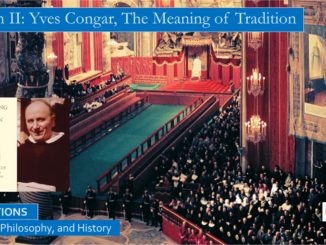
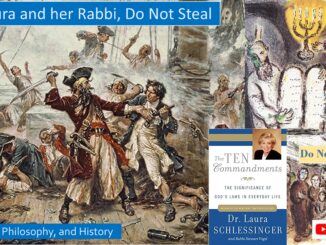
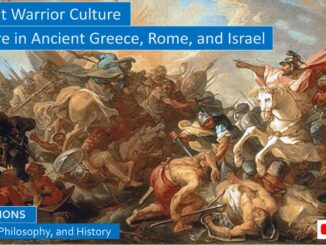
Be the first to comment